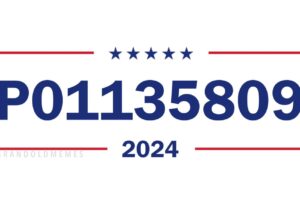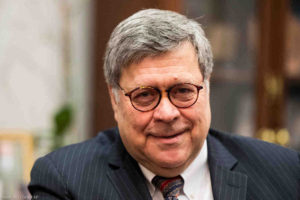On January 12, 2017, the Justice Department’s Office of Inspector General announced that it was initiating “a review of allegations regarding certain actions by the Department of Justice (Department) and the Federal Bureau of Investigation (FBI) in advance of the 2016 election.”
The issues to be examined included, but were not limited to, the following:
“Allegations that the Department or FBI policies or procedures were not followed in connection with, or in actions leading up to or related to, the FBI Director’s public announcement on July 5, 2016 [clearing Hillary Clinton of criminal responsibility for her grossly negligent mishandling of classified materials on her private unsecure email server], and the Director’s letters to Congress on October 28 and November 6, 2016 [re-opening and re-closing the Clinton investigation following discovery of her classified emails on a laptop used by online perv Anthony Weiner], and that certain underlying investigative decisions were based on improper considerations;
“Allegations that the FBI Deputy Director [recently fired Andrew McCabe] should have been recused from participating in certain investigative matters [i.e., the Clinton email investigation after his wife’s campaign for the Virginia state senate had received $460,000 from sources related to longtime Clinton crony Virginia Governor Terry McAuliffe];
“Allegations that the Department’s Assistant Attorney General for Legislative Affairs improperly disclosed non-public information to the Clinton campaign and/or should have been recused from participating in certain matters;
“Allegations that Department and FBI employees improperly disclosed non-public information; and
“Allegations that decisions regarding the timing of the FBI’s release of certain Freedom of Information Act (FOIA) documents on October 30 and November 1, 2016, and the use of a Twitter account to publicize the same, were influenced by improper considerations.”
Since then, the OIG has been investigating and has released a handful of documents including the now famous text messages between Special Agent Peter Strzok and FBI lawyer Lisa Page concerning their hatred of then candidate Trump and the “insurance policy” that was needed in case he won the election. We are told that the full OIG report will be released in a matter of weeks.
In addition, the OIG has just announced that it was opening a review of the actions by the FBI and DOJ in obtaining the FISA warrant and renewals used to spy on the Trump campaign.
All of this has led to demands by Republican members of Congress for the appointment of a special counsel. They have correctly pointed out that the OIG has no authority to bring and prosecute criminal charges.
On March 29, 2018, Attorney General Jeff Sessions published a letter to members of the Senate and the House in which he declined for now to appoint a special counsel. Nevertheless, his letter described some remarkable developments which may make the appointment of a special counsel superfluous.
After reviewing in general terms the OIG’s ongoing investigation, Sessions discussed the limited circumstances under which a special counsel should be appointed. In doing so, he referenced a November 13, 2017, letter by Assistant Attorney General Stephen Boyd to the House Judiciary Committee advising that Sessions had already “directed senior federal prosecutors to evaluate certain issues previously raised by the Committee.” In his letter, Boyd stated that those “senior prosecutors will report directly to the Attorney General and the Deputy Attorney General [Rod Rosenstein], as appropriate, and will make recommendations as to whether any matters not currently under investigation should be opened, whether any matters currently under investigation require further resources, or whether any matters merit the appointment of a Special Counsel.”
Sessions’ letter then states that the Attorney General asked John Huber, the U.S. Attorney in Utah, to lead the effort. He noted that Huber, who was appointed by President Obama and re-appointed by President Trump, has “twice been unanimously confirmed by the Senate as United States Attorney for the District of Utah in 2015 and 2017. Mr. Huber previously served in leadership roles within the U.S. Attorney’s Office as National Security Section Chief and the Executive Assistant U.S. Attorney. He has personally prosecuted a umber of high-profile cases and coordinated task forces focused against violent crime and terrorism.”
Putting all this together, we now know that an experienced prosecutor has been running an investigation parallel to the OIG’s inquiry since approximately the end of 2017. Presumably when the OIG issues its report, we will also learn what, if anything, Mr. Huber’s team has unearthed and whether Sessions believes that a special counsel should be appointed.
There is also the possibility that Huber has already started a grand jury investigation. That would be a long shot given that Huber’s office in Utah is far removed from site of the alleged corruption and criminal activity in and around Washington, D.C.. But anything is possible in these unusual and chaotic times.
The fact of the matter is that Strzok, Page as well as Bruce Ohr, the fourth highest official in Obama’s DOJ, and certain other FBI officials have been reduced in rank but kept on the payroll. Why are they still drawing government paychecks? Either they have been cleared of wrongdoing or they have been nailed criminally and are cooperating with the OIG and Huber.
We will have the answers once the OIG report is released. And, depending on Huber’s findings and recommendations, Sessions may in the end appoint a special counsel to clean house. Unless, of course, Huber and his team have already started the wheels of criminal justice turning.




Leave a Reply
Leave a reply.